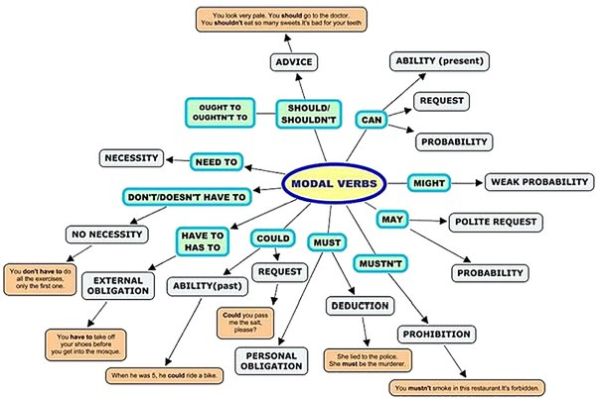What are Auxiliary and Modal Verbs?

Auxiliary verbs are “helper verbs” used in combination with other verbs to assist in stating tone, tense, condition/state, voice or mood. A modal verb is a type of auxiliary verb that expresses possibility, necessity or obligation. Because of their commanding tone, modals must be used carefully, and some writers attempt to avoid them entirely.
Nobody likes to be told what to do. If a reader senses this is happening, he becomes defensive and reads more skeptically. Sometimes, this is completely subconscious, but it is no less of a problem. Limiting those bullying, bossy modals can make writing more pleasant.
▷ Dare
The most feisty of modal verbs, when “dare” is used as a modal, it has a very specific and negative purpose.
“Don’t you dare!” or “How dare you tell her about that?”
▷ Need
“Need” is a black or white word, so use it sparingly.
“You need this.”
Possible alternative: “Would you like this?”
▷ Must
“You must come with us.”
Possible alternative: “We’d love to have your company.”
▷ Should
“You should eat more vegetables.”
Possible alternative: “Vegetables are nutritious, and some of them even taste good.”
▷ Will
“You will like this.”
Possible alternative: “I hope you like this.”
▷ Ought
“Polly ought to try a new hair style.”
Possible alternative: “I wonder if Polly likes any of the new hair styles.”
▷ Can
This verb sounds like the writer/speaker is granting permission–little better than the commanding tone.
“You can come with.”
Possible alternative: “We would like for you to come with.”
▷ May
Like “can”, this verb also tends to sound like a parent voice granting permission.
“Yes you may.”
Possible alternative: “Please do.”
▷ Shall
“You shall not pass!”
Possible alternative: “Please consider an alternate route!”
Оставить комментарий
Для комментирования необходимо войти через
![]() Вконтакте
Вконтакте